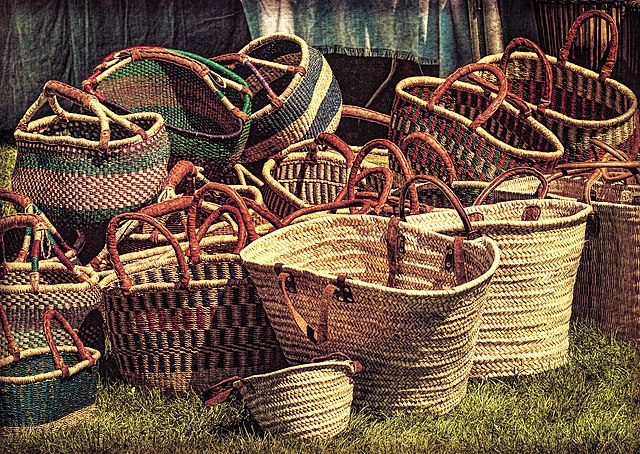written by Teresa Donati
It is the first part of April, 2020, a time of shock and fear through the whole world.
This is a time of Pandemic, a ‘modern age’ that shocks us with its medieval terror of Plague.
Our hearts and diaries and whispered pleas to God can hardly hold all our petitions to God for relief.
I wonder if we need, in our homes, or on the steps of closed churches, prayer baskets; where our fears and supplications, set in our hearts, should also be set on paper in the magical form of written words.
In one of the chapels of the great church at Santiago de Compostela, a prayer basket sits in a lunette niche at one side, the prayers of pilgrim petitioners dropped into the basket. It is in so many ways comparable to the prayers that are written and then pressed into the Wall at Jerusalem.
Should we press our prayers into the walls of the churches? Would it be enough to have a basket on the steps, a small pad and a pencil there, for any passerby to write a prayer?
Should we make a prayer basket in our homes, a little place, even hidden in the dark recesses of a closet, where Jesus said we should go to pray, and not prance about publicly, hypocritically?
In the King James Version (oh, beautiful forever, that language), Jesus says (Matthew 6:6):
But thou, when thou prayest, enter into thy closet, and when thou hast shut thy door, pray to thy Father which is in secret; and thy Father which seeth in secret shall reward thee openly.
We are praying for that open reward, to be liberated from the terrifying, invisible virus that has already taken so many, and that we are told will take many more.
Our hearts already are prayer baskets, filled to the brim with sorrowful and fearful pleadings that God will finally have mercy on us, that in the meanwhile, God will give us the strength to continue day by day. The pathways of so many of our hearts are lined with votive candles, their light a promise and hope and worship, and their fire, we pray, burning away the terror and plague that fills the world.
At the Ohel in New York City, where the blessed Rebbe of the Lubavitcher Hasidim is buried, prayers and requests for his intercession are written out before visiting his resting place. Then, candles are lighted. Then the visitors go into the place where he rests, prayers are recited from the booklet given to those who come to visit and pray. At a point in those prayers, the booklet indicates that it is time to take the letters, tear them into pieces, and place them atop the Rebbe’s tomb. When the letters grow to a great height, they are devoutly removed, and burned, their smoke and ashes drifting toward heaven, toward G-d’s ear and in hope of mercy. The Rebbe’s tomb is a wondrous prayer basket.
These practices are cues from times long ago, that aching hearts have always pleaded with God through the written word. We can leave our messages to the wind and elements, as is done with Tibetan prayer flags, consumed by wind, rain, their words imprinted to give forth a holy presence. Prayer-imprinted flags are another form of basket to hold our invocations.
So, in addition to our hearts, any container can be a prayer basket. It need not be rattan, it can be a box, a washed and clean can that once held nourishment for our bodies, and now can be the receptacle for words that nourish our souls. Can such baskets, like beggars’ bowls, finally even – what a thought! – shame and nag at God for those alms which are the miracle of healing, descending upon this blessed earth?
Image: “A bounhy of baskets” – Sheila Sund from Salem, United States / CC BY (https://creativecommons.org/licenses/by/2.0)

